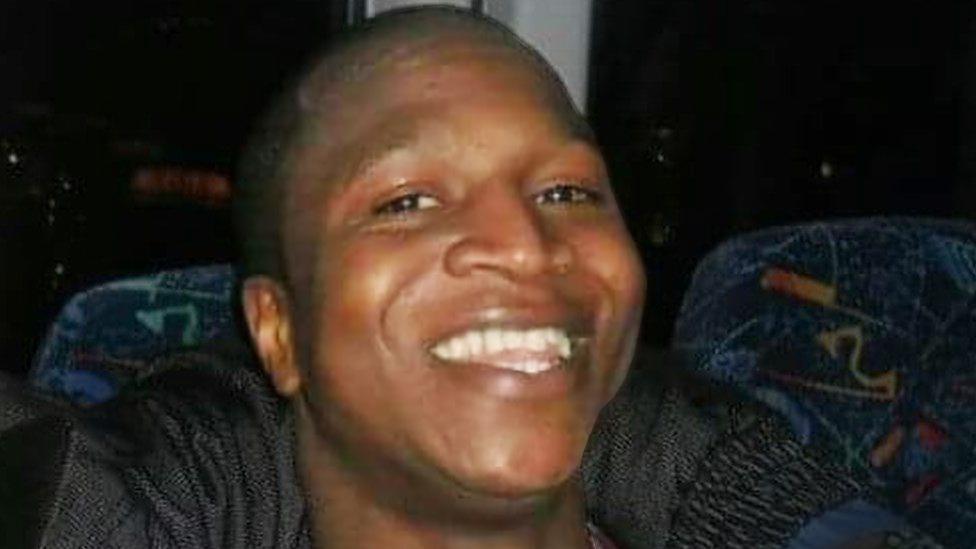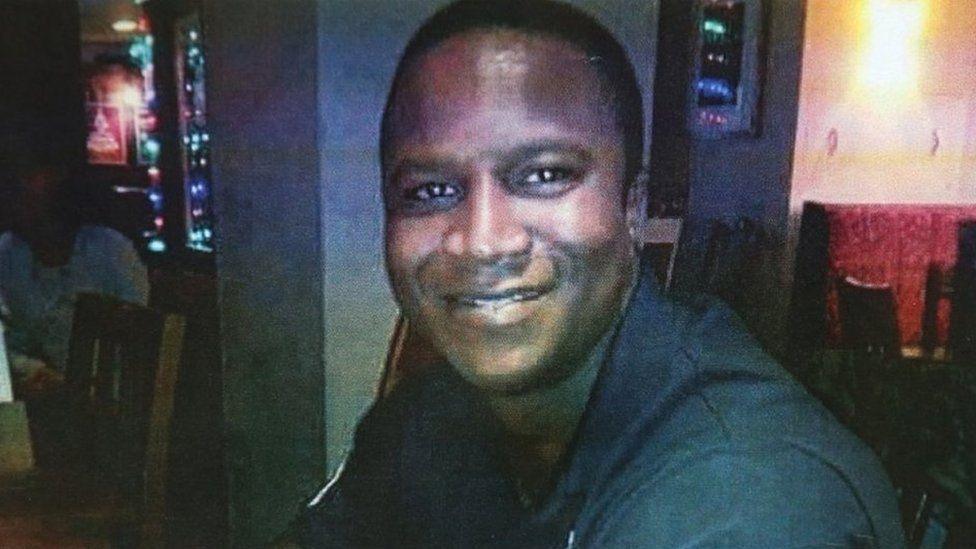Sheku Bayoh inquiry: Expert says most ABD patients are restrained
- Published

Sheku Bayoh died after being restrained by officers in Kirkcaldy in May 2015
One Scottish hospital deals with 26 people each year suffering from a life-threatening drug-induced condition called acute behavioural disturbance (ABD), the Sheku Bayoh inquiry heard.
Dr Richard Stevenson is a consultant at Glasgow Royal Infirmary.
He said ABD was associated with legal highs which first emerged in 2015.
According to the doctor, most patients were fit healthy young men, 80% of whom were physically restrained by police when they came to hospital.
Dr Stevenson said it was "the norm" to see them handcuffed and with leg restraints, and that people who had been restrained fought against it "all the time".
The night before he died in Kirkcaldy in 2015, Sheku Bayoh had taken ecstasy and a psychoactive substance called alpha-PVP.
Members of the public had called the police to report that he was carrying a knife and behaving erratically.
The 31-year-old stopped breathing when he was being restrained on the ground by six officers and later died in hospital.
The lead medical advisor for Police Scotland, Dr Stevenson, was one of the authors of new guidelines on dealing with ABD which was issued this year by the Royal College of Emergency Medicine.
He said patients were usually in a paranoid and confused state with a raised temperature, and that it could be frightening for staff and doctors to deal with.
A sedative, usually ketamine, would be administered as quickly as possible. Most patients recovered after treatment and were released from hospital within a day.
Dr Stevenson said he knew of four or five patients with ABD who had died at the hospital after suffering multiple organ failure.
He had personally dealt with 10 patients with ABD. Verbal de-escalation techniques had never been possible because they were already in a life-threatening condition when they arrived at the accident and emergency department.
De-escalation was more likely to be successful if attempted much earlier, he said.
Related topics
- Published22 November 2023
